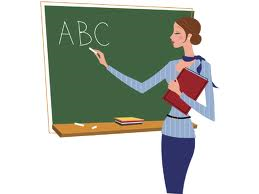Computers, using some AI techniques like those we discussed in Chapter
4, can learn. In the classroom while a
child is using a tablet PC to learn the basics of addition, how can software be
developed to aid in the learning process?

Based on the learning styles of a person, a software can be developed
particular in 3 aspects to aid the learning process:

Aural (or
Auditory) Learners
These
learners generally prefer to hear information. They will typically learn most
easily from lectures, group discussions, music, web chats, or talking things
through. Often people with this style will process things by talking about
them, rather than talk about things after they've processed them.
Aural
learners benefit from the aid of a software by being able to clearly hear what
is happening; being able to see what is happening is less important. They might
choose to study by reading aloud with the aid of software, and they benefit
from verbalizing what they've learned.
With the aid
of software, a aural learner repeat the hearing process by listening to a
proper pronunciation and attractive voice without the aid of a teacher and
hence fasten the learning process
Visual
Learners

Maps, charts,
diagrams, graphic organizers, patterns and shapes—these are some of the best
tools for visual learners. They tend to be "big-picture" people and
are often interested in layout and design. Individuals who prefer this learning
style generally can grasp information more quickly (and more thoroughly) when
it is organized graphically than they would if that same information were
explained aloud.
A software
can assist in presenting the learning materials in the form of graphics,
diagrams in helping visual learns to absorbs the learning materials in a more
effective way.
Kinesthetic
Learners
The word
kinesthetic means movement, and certainly these learners prefer to learn by
doing something physical (such as a hands-on activity or a field trip). But
there's more to it than that. Some researchers have defined this style as
preference for learning related to experience and practice—in other words, they
prefer their learning to be connected with reality. Certainly physical
activities accomplish this.
A software
can be designed to provide a interactive interface to allow a kinesthetic
learners to experience the leaning process in order to strengthen their
learning process.
Does this mean that teachers are no longer needed for some
subjects? Are teachers needed in earlier
grades while computer-based training can take over in later grades? Why or why not ?

The teachers are still needed for some
subjects whether in earlier grades or later grades. This is because despite the
usefulness of the technologies, a human interaction is required to teach and
facilitate the learning process. In addition, there are many values and
knowledge can not be teach directly through a computer.
Question 2
End-user systems, like those that allow patrons to order meals on an
iPad, must be “idiot proof.” (We apologize for the crudeness of that
term.) That is, systems must be
usable without training and created in such a way, for example, that a patron
at one table can’t accidentally change the order of a patron at another table. What does this mean for systems
development?
This means that the system must be developed in such a way which is
intelligent enough a place an order.
Can complex and complicated end-user systems be developed and deployed
on tablet PCs so that people can use the systems without training and without
intervention by a knowledgeable person such as a waiter or waitress?
Yes. The development
of the system should heading to a more complicated and complex end-user system without
training and without intervention by a knowledgeable person such as a waiter or
waitress.
As discussed above, we
still need to emphasized on the human interaction when come customer service
particularly in a service industry.
Question 3
What security issues are involved in
allowing people to pay with tablet PCs?
Does this payment process make it easier for someone to steal your
credit card information?
The securities issues involved can be the theft of personal information
which is private and confidential and causing financial losses by using tablet
PC.
Are you comfortable using a
restaurant-supplied technology to enter your credit card information? Why or why not ?
Not confortable. This
is because the restaurant supplied technology is not 100% guaranty the
information will be prevented from theft or be used for other purposes.
Question 4
What will happen to offshore outsourcing for software development? Can outsourcing firms in India and China for
example be expected to develop software systems for use in U.S. schools? Can those same firms be expected to develop
systems that meet FAA rules and restrictions ?
Offshore outsourcing will help the further
boost of software development because there is sharing of information,
expertise and intellectual.
There is no any issue for India and China to
develop software system use in US schools. Although there is a geographical
barrier but through an effective communication, those developed software can
meet the standard and requirements in US.
Yes, those same firms can be expected to
develop system which meets the rules of FAA and restriction so long as a good
communication and the compliance matter are met by the developer.


Thanks for sharing article with us..nice post...
ReplyDeleteAdvertising Agency in Hyderabad